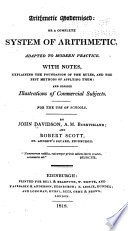 | John Davidson, Robert Scott (writing master) - Arithmetic - 1818 - 190 pages
...either party, men in business use the following RULE. Multiply each debt by the time it has to run, then divide the sum of the products by the sum of the debts, the quotient is the time at which all the money ought to be paid, nearly. EXAMPLE. A. owes to B. £25... | |
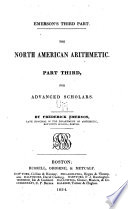 | Frederick Emerson - Arithmetic - 1834 - 300 pages
...sum of them by the sum of the debts. RULE. Multiply each debt by the time, in which it is payable, and divide the sum of the products by the sum of the debts: the quotient will be the equated time. 1. If I owe you 50 dollars payable in 4 months, 75 dollars payable... | |
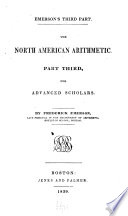 | Frederick Emerson - Arithmetic - 1839 - 300 pages
...sum oi them by the sum of the debts. RULE. Multiply each debt by the time, in which it is payable, and divide the sum of the products by the sum of the debts: the quotient will be the equated time. 1. If I owe you 50 dollars payable in 4 months, 75 dollars payable... | |
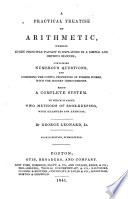 | George Leonard - 1841 - 356 pages
...either debtor or creditor, merchants usually Multiply each debt by the time to elapse before it is due, and divide the sum of the products by the sum of the debts. Though this method is inaccurate it is easy, and experiment shows it may be employed without much error,... | |
 | George Leonard (jr.) - Arithmetic - 1841 - 350 pages
...either debtor or creditor, merchants usually Multiply each debt by the time to elapse before it is due, and divide the sum of the products by the sum of the debts. Though this method is inaccurate it is easy, and experiment shows it may be employed without much error,... | |
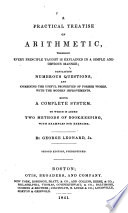 | George Leonard - Arithmetic - 1841 - 354 pages
...either debtor or creditor, merchants usually Multiply each debt by the time to elapse before it is due, and divide the sum of the products by the sum of the debts. Though this method is inaccurate it is easy, and experiment shows it may be employed without much error,... | |
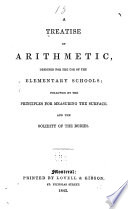 | Arithmetic - 1843 - 142 pages
...may be paid at once. RULE. Multiply each debt by the time which must elapse before it is due ; then divide the sum of the products by the sum of the debts for the equated time nearly. 1. A owes me £150 in 40 days, £70 in 60 days, £200 in 105 days ; at... | |
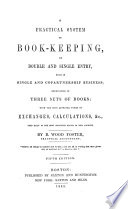 | Benjamin Wood Foster - 1845 - 166 pages
...debts, due at different periods of time. RULE. Multiply each amount by the time in which it is payable, and divide the sum of the products by the sum of the debts ; the quotient will be the equated time of payment EXAMPLES. 1. Bought of Silas Pierce & Co. аз follows,... | |
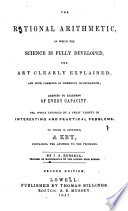 | James S. Russell - Arithmetic - 1847 - 340 pages
...or days, as is most convenient, between the time of the calculation) and the maturity of the debt, and divide the sum of the products by the sum of the debts; the quotient will show the number of years, months, or days, to elapse before the single payment of... | |
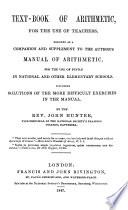 | John Hunter (of Uxbridge.) - 1847 - 266 pages
...terms, as follows:— Multiply the given debts by their respective times, expressed in one denomination, and divide the sum of the products by the sum of the debts. The two last Exercises will, to those who are acquainted with algebra, afford opportunity of comparing... | |
| |